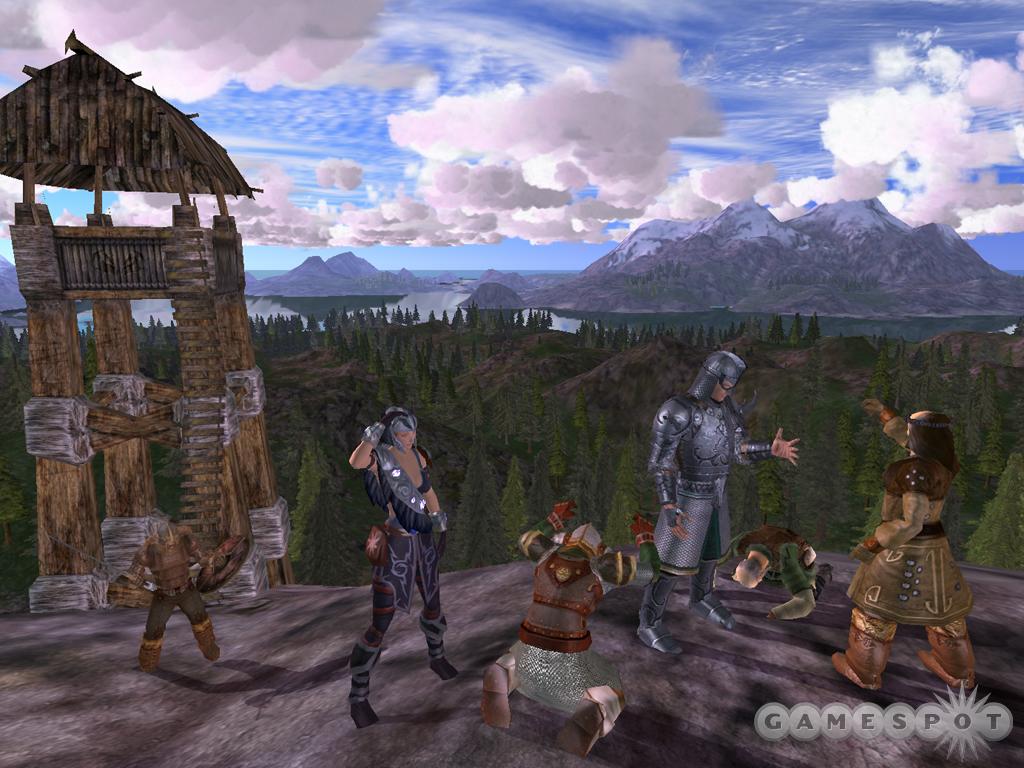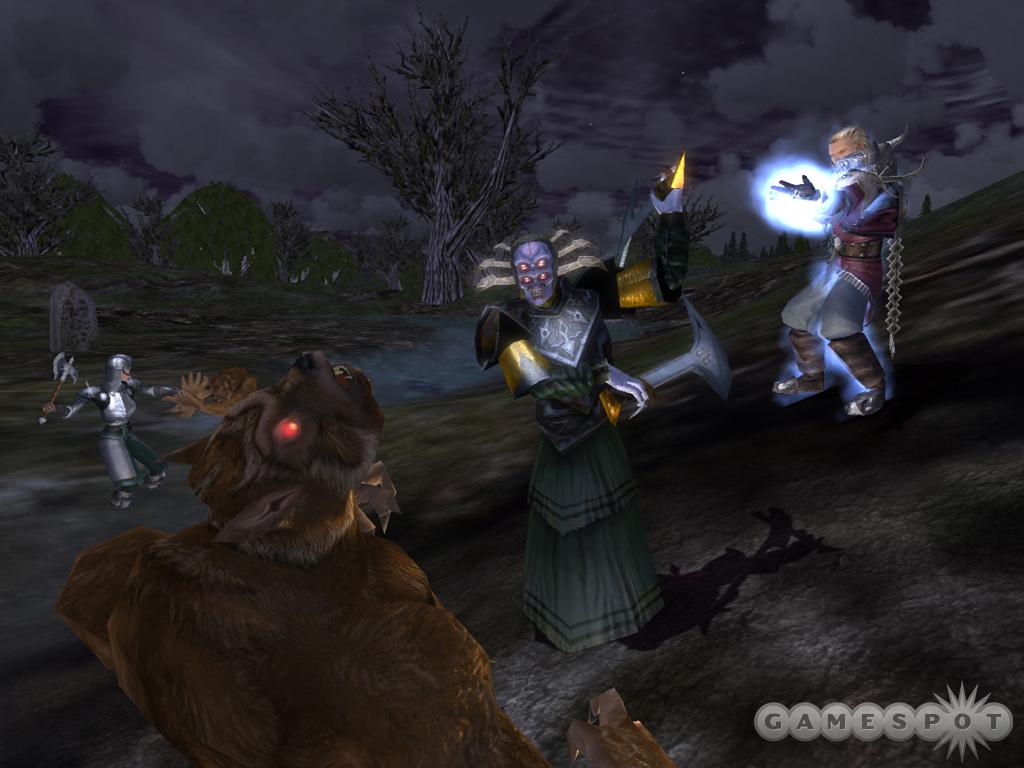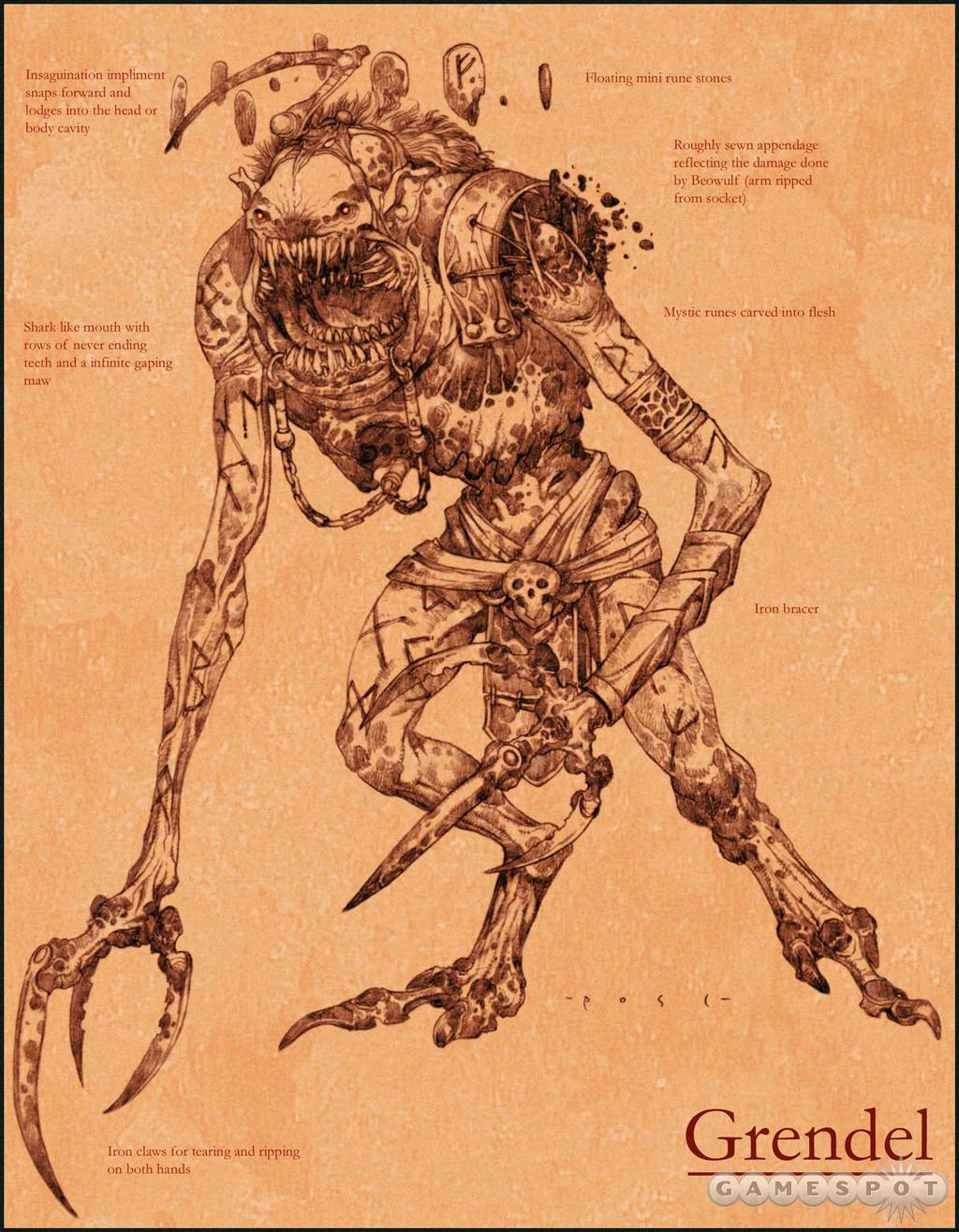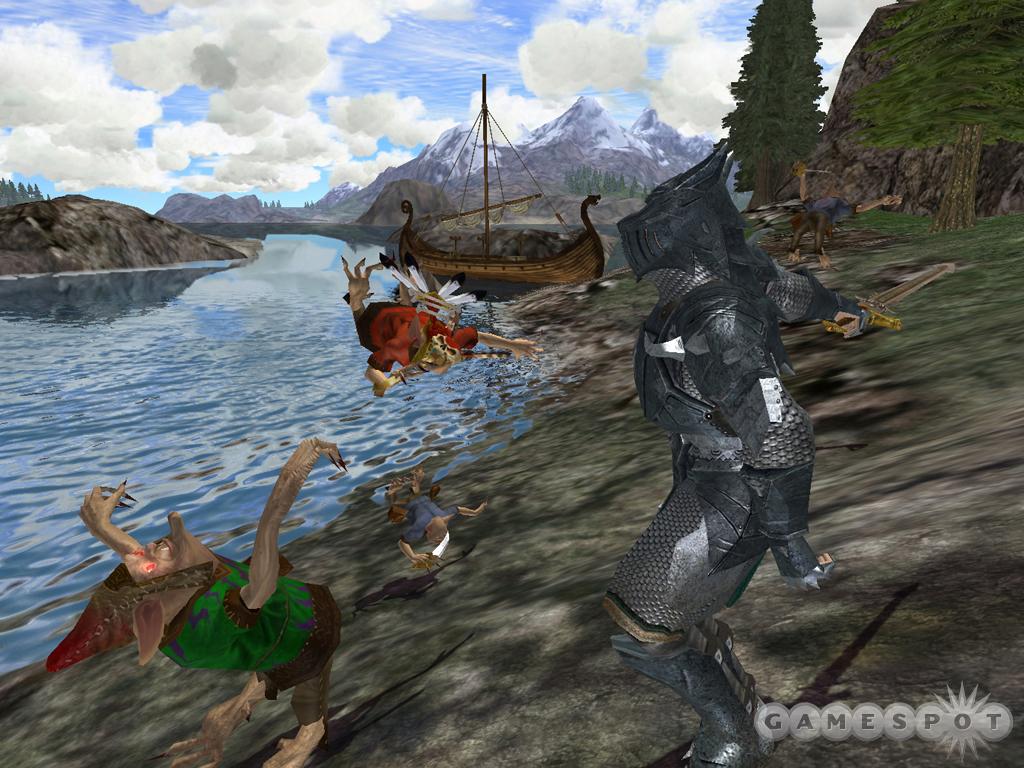Mythica Q&A
We get an update on this upcoming online role-playing game that will let you play as a god.
If you've heard of EverQuest, Asheron's Call, or Final Fantasy XI, then you've heard of massively multiplayer online role-playing games, which let you create a character and explore a vast and colorful online world with other, like-minded adventurers. And you may also have heard that they tend to start out about the same: with you as a pitifully weak character dragging around a rusty sword to fight a bunch of rats in the hopes of scrounging up some copper pieces.

Microsoft's Mythica will attempt to break from this tradition by putting you in the role of a god--or a god-in-waiting, at least. In the game, which is based on Norse mythology, you'll play as a fallen Viking warrior who has been spirited off to Valhalla, only to be recruited by the great gods, lead by the all-father Odin, to prepare for the coming of Ragnarok, in which the fate of the world will be decided in battle with an army of fearsome fire giants. Interestingly, your character will develop not through a simple character profession system, but through faith that you'll garner through mortal worshippers. You'll also be able to conduct adventures in individual "private realms," which will help ensure that your favorite hunting spot is never overcrowded. We sat down with lead designer Joel Manners for more details.
GameSpot: Could you give us an update on Mythica's development? How far along is the game, and what parts of it is the team working on at this point?
Joel Manners: [The design team is] in full content production right now, while the development team is focusing in on [making the game] feature-complete. Our next steps are going into private and then public beta, so we want to make sure that we are ready for that!
GS: When we last checked in, we discussed Mythica's intriguing premise, which is based on classical Norse mythology--particularly the way in which players can accrue favor from their patron gods. How has this system developed since then? Could you shed some more light on how players will be able to compete for divine favor?
JM: Followers are extremely significant to Mythica. Players must gather worshippers from amongst the mortal races, and these worshippers in turn serve the players they follow. The player's character, as an immortal, can task his followers with quests or work, such as raising a shrine to the immortal or slaying a monster in the immortal's name. The more followers you have worshipping your character, the more powerful he grows, filled with the energy of their prayers, and the more the immortal can look like or act like his followers. Immortals can gain followers by doing all sorts of things. Fear and love are both powerful forms of worship!
GS: We've heard hints that perhaps the divine favor system might actually provide a unique new task for experienced players with advanced characters: specifically, competing with other players for divine favor of specific gods. Is this something that definitely seems like it will be in the game, and if so, how will the system work? Will it be tied in with the game's player-versus-player battles?
JM: "Patron favor" and "character fame" can come in all sorts of ways. Characters can try to accomplish quests set by their patrons and will be rewarded with new powers and abilities. Particular success gains the immortal the fame and recognition he desires amongst the mortals (and later the immortals) or the different realms, with shrines and statues commemorating their accomplishments.
One thing that we are not concentrating on is direct player-versus-player (PVP) gameplay. We don't want players to have to try and use PVP success to bolster their player-versus-environment (PVE) character, or the other way around. Any PVP battles or battle plains that do exist will just be for fun and bragging rights, and they won't directly impact the character's main growth.
Instead, players will focus on gaining power for the mighty struggle with the fire giants that is being waged on the charred fields of Muspellheim. Victory in these battles is the final goal for all the immortals, and [it will be] the ultimate reward of fame and glory.

GS: While competing with other players might be an interesting prospect, we expect that the team will also implement features to encourage players to work together and form actual communities. What sort of community-building features does the team have planned for the game?
JM: Community is such an important part of an online game (especially a persistent one) that we want to pay considerable attention to supporting it. Players like to be able to form official groups and receive real gameplay and social benefits from being in the group. This means both long-term player groups (guilds) and short-term (hunting parties and alliances). We also want players to be able to monitor and interact with their social groups and friends out of the game so that players can chat and update and plan from work or wherever they happen to be.
Divine Retribution
GS: We previously saw Mythica in action at E3, in which a small party went on an adventure that ultimately culminated in a dramatic battle against a fire giant. But we imagine that not all adventures will be exactly like this when players first start their career in Mythica. What are some of the things that players will be doing in the early game?

JM: Yes, players will not be sent against the fire giants right away. The characters have to gain enough followers and power in the mortal realms to give them a chance against their immortal foes before they can really attempt an adventure like that. But one of the things that we are focusing on for Mythica is that no matter what level you are you get the epic feel of an immortal shaking up the universe.
To accomplish this, we are creating many modules that show large battles or epic adventures. [For lower-level characters], these often are wars among mortal factions, or battles of mortals against the corrupted minions of the fire giants, but they are epic in size and number nonetheless.
What exactly the characters do in these modules is, of course, up to them. Very early on, for example, there is a great module centered on a mountain pass in which the humans have pitched their last great defense against the onrushing tides of the corrupted armies. Players can jump in and help the humans defend the gates and walls of their defenses, or they can use the confusion to simply slip past the corrupted armies and into the realms beyond the pass.
Of course there are other things to do besides participate in battles. [They can explore new areas, like] one area where ancient magical springs bubble to the surface near an ancient crypt built by a long-forgotten mortal civilization, or a massive keep built by the frost giants into a glacier that has slid over the remains of an ancient epic battle.
GS: On a related note, what lies in store for a more-accomplished adventurer who has already fought many minor battles? What challenges will advanced players face--creatures from traditional mythology such as Fafnir the ice dragon (or Fafnir the giant) or perhaps actual gods from the Nordic pantheon? Mythica's backstory involves Ragnarok, the final battle between gods and fire giants--will this be an ongoing campaign, or will this conflict represent a final, climactic end to the game?
JM: We are not quite ready to reveal all about our endgame, but you are right in that it does indeed involve Ragnarok and the fight against Surt, the king of the fire giants. High-level players will find themselves moving into an area where they are more and more a part of Odin's army of heroes, the Einherjar, part of the great struggle, and less and less a single immortal messing about with the mortal races in their realms.
Part of that struggle will definitely be with the creatures, heroes, and gods of the myths. Some of them, such as Surt and Fenris, are easy to create quests around, but I am still trying to figure out how to get Ratatosk into the game. He's too cool to leave out!
GS: One of Mythica's most intriguing features is its use of "private realms," separate playfields that are generated for specific players or groups of players (rather than forcing everyone to hunt rats together in the same huge field). How will these private realms change over time, depending on the actions of players? Will these changes be dependent on completing or failing specific quests or on time limits or other concerns?
JM: The general rule of thumb is that a private realm will start off the same each time you enter it. We will evolve the starting state over time through updates, and we will track player behavior and success within the modules, so we can base the evolution off of that, but it's not dynamic.
However, once past that starting state, the behavior of the realm can be very different each time. If you have completed certain quests or accomplished certain goals within that realm already, the realm will respond to you differently. If you go back to a private realm after completing half of it in a previous session, some of your objectives will already be accomplished. Many of the private realms are linked together to form epic quests. The really long quests are all done in this manner, with linked modules, so you do not have to pound through them in one session. You can make partial progress, then return later or move on to the next step later, and the private realm will recognize that and alter what it does in response.
Also, you have to remember that many of our modules are what we call playscapes, which are almost like real-time strategy game campaigns in their ability to grow and change over time. Playscape realms give you objectives to accomplish just like other private realms, but they also add "levers" throughout the module, which react to your actions. AI-controlled characters grow over time, trying to accomplish their goals and responding to the levers. This makes the playscapes incredibly replayable and dynamic, since something totally different can happen each time you go through them.
GS: Finally, is there anything else you'd like to add about Mythica?
JM: Well, this may sound strange, but I am starting to get extremely excited about Mythica. Usually at this stage in the production cycle you are concentrating on simply executing on those cool ideas that got you so excited a year (or more) ago, and the execution is usually a little disappointing compared to the vision. But in the case of Mythica, the more we get into the game, the cooler it seems to get!

First of all, we are getting a chance to play a role we never had before: that of a god. A big, bad, old-fashioned Norse god, full of thunder and lightning and ale. And don't forget tricky, crafty sneakiness too. There's a huge difference between a warrior hero and a god, a huge difference in what you can do and a huge difference in how the world responds to you, with worshippers and shrines and devoted followers amongst the mortals and with terrible immortal foes lurking in the mountains and in the pits of hell (or Muspellheim, in this case).
However, all of that pales in comparison with the fact that we are giving players a great new type of experience in the online genre. Our main goal is to give players the chance to really become the god that the whole world worships, the one who defeated the giant, who broke the black gates, the one who wrestled the world-serpent into submission, the one who wrote his own saga that the world knows and responds to. We want to make sure that every player gets to be that god, not just someone standing in line to get his chance to repeat what everyone else has already done.
GS: Thanks, Joel.
Got a news tip or want to contact us directly? Email news@gamespot.com
Join the conversation